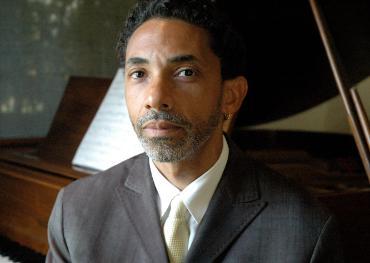
MLK Commemoration

Sixty years after the passage of the Civil Rights Act, we commemorate the courageous hero who facilitated the Act's passage and who galvanized a movement toward lasting justice and equity. We reflect on the legacy of Dr. King and join together as a community to look toward the future.
Tuesday, January 16, 2024
12:15 p.m. - 1:30 p.m.
Pigott Auditorium
Box lunches will be available for pickup after the program. Please help us know how many to order by clicking below.

About the Keynote Address
“From Montgomery to Oslo”: Martin Luther King’s Global Vision of Justice
This is, indeed, the 60th anniversary of the Civil Rights Act. It was also 60 years ago that Dr. King received the Nobel Peace prize. These events cannot be separated, for it became perfectly clear in his acceptance speech that the Civil Rights Act was not the culmination but the beginning of a much bigger global struggle for justice and peace. His internationalism and dedication to peace did not begin with some epiphany in 1966 when he began speaking out against the Vietnam War. It was there at the outset, and it shaped the movement’s demand for the bill—which, it should be clear, he nor any Civil Rights leader drafted. Dr. Robin D.G. Kelley's keynote address will examine King’s global vision of justice, expressed both in his life and work and in his Nobel Prize speech, and reflect on its implications for today.
About the Keynote Speaker

Robin D. G. Kelley is Distinguished Professor and Gary B. Nash Endowed Chair in U.S. History at UCLA. Member of the American Academy of Arts and Sciences, he is the recipient of many awards and fellowships, including a Guggenheim Fellowship and Freedom Scholar Award. His books include the award-winning, Thelonious Monk: The Life and Times of an American Original; Hammer and Hoe: Alabama Communists During the Great Depression; Freedom Dreams: The Black Radical Imagination; Race Rebels: Culture Politics and the Black Working Class; Yo’ Mama’s DisFunktional!: Fighting the Culture Wars in Urban America (Beacon Press 1997); Africa Speaks, America Answers: Modern Jazz in Revolutionary Times.
Kelley is currently completing two books, Making a Killing: Cops, Capitalism, and the War on Black Life and The Education of Ms. Grace Halsell: An Intimate History of the American Century (both forthcoming Metropolitan Books).
His essays have appeared in dozens of publications, including The Nation, New York Times, American Historical Review, American Quarterly, African Studies Review, Social Text, Metropolis, Journal of American History, New Labor Forum, and The Boston Review, for which he also serves as Contributing Editor.